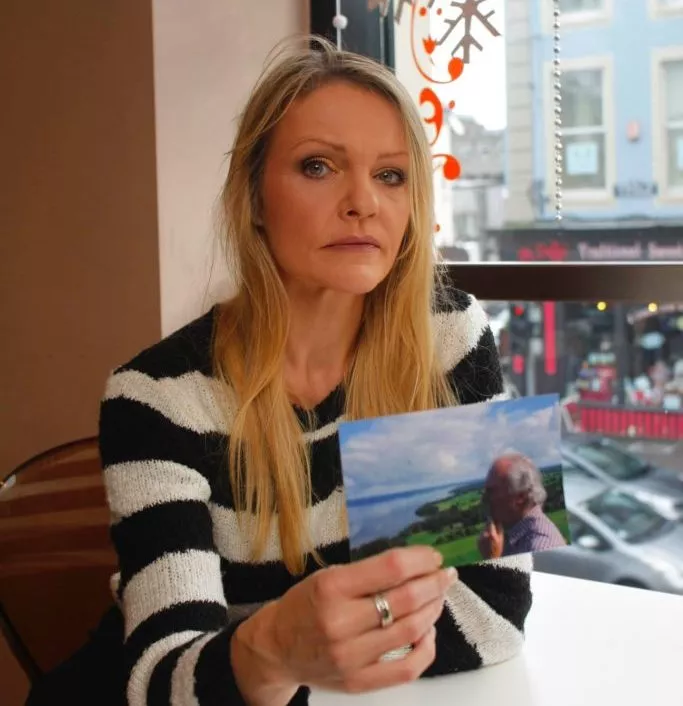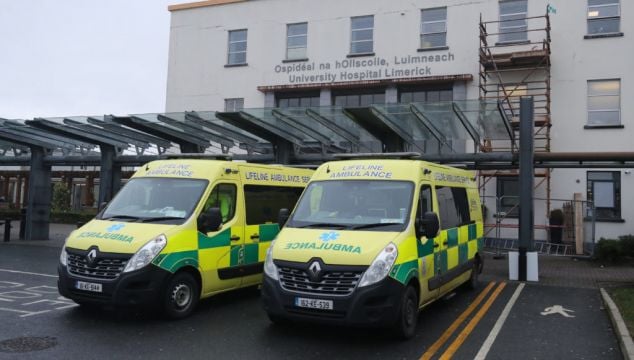The UL Hospitals Group has acknowledged longterm shortfalls in facilitating dying patients and their families with single rooms.
The issue was first highlighted seven years ago when a single room at University Hospital Limerick (UHL) could not be found for 73-year-old inpatient Eddie Moloney, who was dying of a brain bleed.
Mr Moloney spent 12 hours on a trolley in a corridor at the Limerick hospital before being moved to a crowded ward where he eventually died two days later as other visitors shouted on Ireland in a rugby match that was blaring out of a television above his bed.
Before he died, Mr Moloney’s family had asked for a single room so they could say their goodbyes to him in private, but there were no single rooms available.
With the seventh anniversary of Mr Moloney’s death nearing, a hospital spokesperson said: “We regret that it has not always been possible to find a single room for patients at end-of-life and their families, and we acknowledge that there are times when we can’t offer what a patient and their family need at the end of their life”.

Mr Moloney’s daughter, Joanne Moloney, who publicly called for at least one bereavement room to be provided at UHL in 2015 following her father’s death, said it was “disgusting” that this was still not readily available at UHL.
“The Government releases funding to our public hospitals and our politicians should be ashamed of themselves, as this is obviously still going on seven years later. It is terribly traumatic for families,” Ms Moloney said.
She said it was heartbreaking for her father and her family to say their goodbyes as other visitors were watching at a rugby match around them.
Leo Varadkar, who minister for health at the time of Mr Moloney's death, said he was “deeply ashamed and embarrassed if anyone has that sort of end-of-life experience in our health service” adding: “It makes me more determine to do something about it.”
Capacity issues
Bed capacity and space for patients remains a massive problem at UHL despite an increase in single beds and a new Emergency Department (ED).
A record 126 patients were left waiting on trolleys at UHL in April and 15 ambulances had to queue outside the hospital in March due to delays in handing over patients.
UHL provides the only 24-hour ED service in the Mid-West region, after units were reconfigured from Clare and Tipperary. The hospital routinely records the highest levels of overcrowding in the country.
Ms Moloney said her calls for “at least one (bereavement) room on every ward, or every floor, or at least one room per hospital” have fallen on deaf ears.
“Leo Varadkar said seven years ago that he was ashamed about it, but what has been done? Little or nothing as far as I can see,” she said.
The UHL spokesperson added: “Hospitals remain the most common place of death in Ireland, with an estimated 40 per cent of all deaths taking place in hospital.”
Responding to this, Ms Moloney said: “Considering that 40 per cent of us will die in hospital, then we absolutely need end-of-life rooms as a priority.
“My family and I had no privacy saying goodbye to my father, and the mad thing is, after my dad died, we were brought into a room and offered tea and toast. The room was large enough to have had a bed, but instead it was used for tea and coffee facilities.
“I am still so angry about that, and when I mentioned it to the nurse, she understood the irony of it as well.”
'Hugely challenging'
The UHL spokesperson said the hospital strives to ensure “that every person who dies in our care does so privately, with dignity and surrounded by those closest to them”.
“This can be hugely challenging in a busy acute hospital like UHL, which routinely operates above its bed capacity,” he added.
The spokesperson said “less than half” (approximately 46 per cent) of UHL’s 530 inpatient beds are in single rooms and “everyone of these beds is in demand and the requirement for single rooms has risen significantly since the start of the Covid-19 pandemic”.
The spokesperson added that staff are required to make difficult decisions around provision of single rooms, as the rooms are also “required for proper infection prevention and control; where patients are immunocompromised, and have other complex medical or social care needs”.
UHL said it is “providing additional end-of-life training” for staff, and that due to increased bed capacity in recent years, the percentage of people who died in a single room in the hospital increased from 64 per cent (2018) to 74 per cent (2021).
UHL’s clinical director, Professor Brian Lenihan, said last June that the hospital requires at least 200 additional beds to adequately deal with a “staggering” number of patients attending its ED.
A damning report published in June by the Health and Information Quality Authority (Hiqa) said chronic overcrowding and significant nurse and bed shortages at UHL’s ED was putting patients at risk of harm, as well as compromising their dignity and confidentiality.
Ms Moloney summed up the mood locally: “Seven years on and nothing has changed - in fact it appears to have got worse.”







